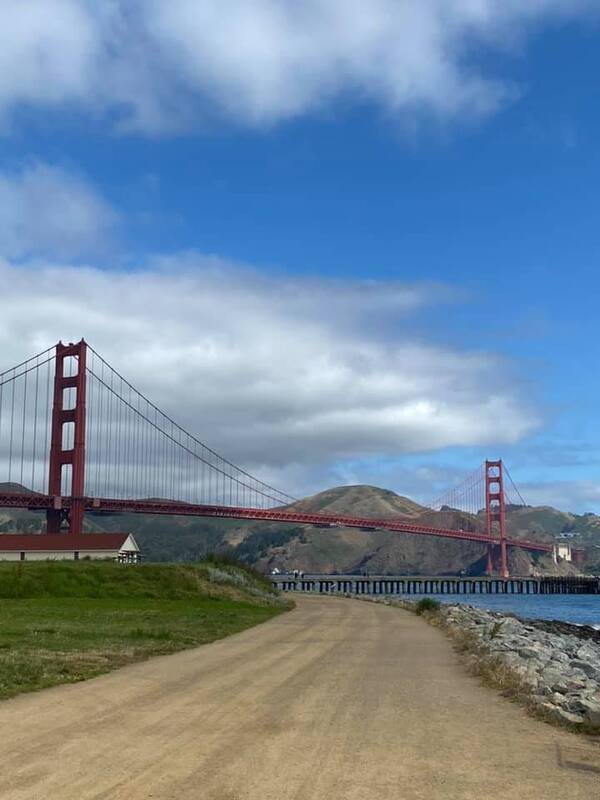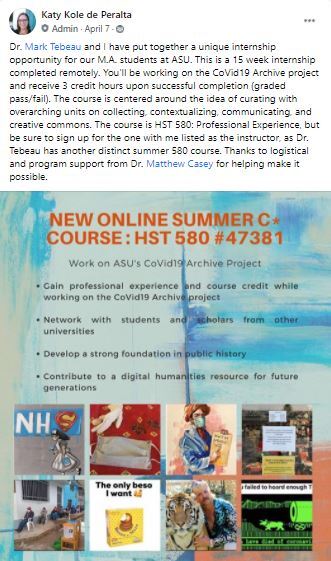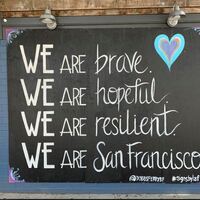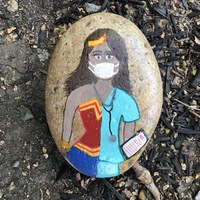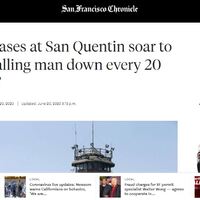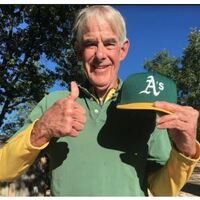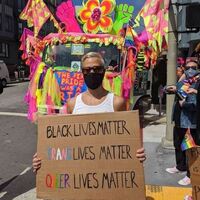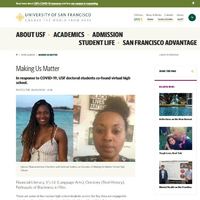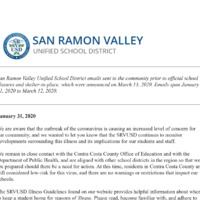Elemento
Shanna Gagnon Internship Portfolio
Media
Título (Dublin Core)
Shanna Gagnon Internship Portfolio
Description (Dublin Core)
I first heard about the A Journal of the Plague Year: An Archive of COVID-19 (JOTPY) internship opportunity through Arizona State University's History Master's Student's Facebook page. I decided to pursue my M.A. in history degree for a variety of reasons: I love learning, I love history, and I hoped to gain exposure to potential career opportunities. I chose to attend ASU because it was clear to me that the faculty prioritize community. When I saw Dr. Kole's Facebook post, I was instantly captivated. It was precisely the type of experience I was looking for without even knowing it. And it was an opportunity to work in real-time with ASU faculty and with other M.A. students, which created additional avenues to build community. I contacted my faculty advisor and decided to drop my upcoming courses to open up my schedule for this once in a lifetime experience.
Before JOTPY, I had very little knowledge of public history. As a high school educator, I have always believed in the importance and power of public history. Outside of teaching, however, I had no experience working in public history. My experience with JOTPY taught me that public history requires professionals to simultaneously use high-level critical thinking skills (i.e., how can we fill silences within the archive) and pay attention to details and minutiae (i.e., make sure that curator’s folksonomy terms are lowercase). One's ability to think "big picture" while not losing sight of the building blocks is crucial to the success of projects such as JOTPY. I have developed the ability to easily transition my thinking depending on the type of archival work that I am engaged in. Additionally, I have developed my ability to write in various modalities (i.e., blog posts, collection plans, press releases). I have fine-tuned working remotely, sharpened my problem-solving skills through innovative thinking, and learned a variety of new software – from Omeka to Slack to otter.ai. I have also developed an understanding of ethics and best practices in public history. Although I am not sure in what capacity, I would like to continue to work within the field of public history.
As expected, the JOTPY internship was indeed a once in a lifetime experience. It felt good to do something for the very first time again. I felt challenged by the different types of writing we were asked to produce. Having never written a collection plan, a press release, or a blog post, each of those assignments pushed me outside of my comfort zone. As a result, I learned that I indeed do still love learning new things. Perhaps the most fulfilling aspect of this experience for me was working within my internship cohort. Our team's ability to directly communicate with each other, to offer constructive feedback, to step in to help others when needed, and to adapt to ever-constant changes characteristic of working in a rapid response live archive, was simply incredible. I also really enjoyed engaging with ASU faculty. Dr. Kole was an incredible leader whose guidance and support truly brought out the best in every single intern. She cultivated our strengths and presented opportunities for us to further develop our interests and passions while supporting the overall mission and work of JOTPY. I am not sure where I am headed next. However, I do know that by leaning into unique opportunities is something that I enjoy. I plan to continue to look for various ways to further develop myself academically, professionally, and personally.
I developed the San Francisco Bay Area Collection as a way to ensure the diversity of the region was captured within the archive. One of the Collection's strengths is its ability to intersect with other major collections within JOTPY. While I do not have an official role within JOPTY, I plan to further develop the San Francisco Bay Area Collection through the curriculum I develop for my own students.
Before JOTPY, I had very little knowledge of public history. As a high school educator, I have always believed in the importance and power of public history. Outside of teaching, however, I had no experience working in public history. My experience with JOTPY taught me that public history requires professionals to simultaneously use high-level critical thinking skills (i.e., how can we fill silences within the archive) and pay attention to details and minutiae (i.e., make sure that curator’s folksonomy terms are lowercase). One's ability to think "big picture" while not losing sight of the building blocks is crucial to the success of projects such as JOTPY. I have developed the ability to easily transition my thinking depending on the type of archival work that I am engaged in. Additionally, I have developed my ability to write in various modalities (i.e., blog posts, collection plans, press releases). I have fine-tuned working remotely, sharpened my problem-solving skills through innovative thinking, and learned a variety of new software – from Omeka to Slack to otter.ai. I have also developed an understanding of ethics and best practices in public history. Although I am not sure in what capacity, I would like to continue to work within the field of public history.
As expected, the JOTPY internship was indeed a once in a lifetime experience. It felt good to do something for the very first time again. I felt challenged by the different types of writing we were asked to produce. Having never written a collection plan, a press release, or a blog post, each of those assignments pushed me outside of my comfort zone. As a result, I learned that I indeed do still love learning new things. Perhaps the most fulfilling aspect of this experience for me was working within my internship cohort. Our team's ability to directly communicate with each other, to offer constructive feedback, to step in to help others when needed, and to adapt to ever-constant changes characteristic of working in a rapid response live archive, was simply incredible. I also really enjoyed engaging with ASU faculty. Dr. Kole was an incredible leader whose guidance and support truly brought out the best in every single intern. She cultivated our strengths and presented opportunities for us to further develop our interests and passions while supporting the overall mission and work of JOTPY. I am not sure where I am headed next. However, I do know that by leaning into unique opportunities is something that I enjoy. I plan to continue to look for various ways to further develop myself academically, professionally, and personally.
I developed the San Francisco Bay Area Collection as a way to ensure the diversity of the region was captured within the archive. One of the Collection's strengths is its ability to intersect with other major collections within JOTPY. While I do not have an official role within JOPTY, I plan to further develop the San Francisco Bay Area Collection through the curriculum I develop for my own students.
Date (Dublin Core)
August 22, 2020
Creator (Dublin Core)
Shanna Gagnon
Contributor (Dublin Core)
Shanna Gagnon
Event Identifier (Dublin Core)
HST580
Partner (Dublin Core)
Arizona State University
Tipo (Dublin Core)
portfolio
Controlled Vocabulary (Dublin Core)
English
Cities & Suburbs
English
Public Art
English
Public Space
English
Social Distance
English
Social Issues
English
Sports
English
Protest
English
Neighborhoods
English
Home & Family Life
Curator's Tags (Omeka Classic)
San Francisco Bay Area
intern
curate
public history
archive
regional studies
intersectionality
diversity
California
Collection (Dublin Core)
San Francisco Bay Area
Linked Data (Dublin Core)
Date Submitted (Dublin Core)
08/22/2020
Date Modified (Dublin Core)
08/22/2020
08/02/2022
09/24/2024
This item was submitted on August 22, 2020 by Shanna Gagnon using the form “Share Your Story” on the site “A Journal of the Plague Year”: http://mail.covid-19archive.org/s/archive
Click here to view the collected data.
